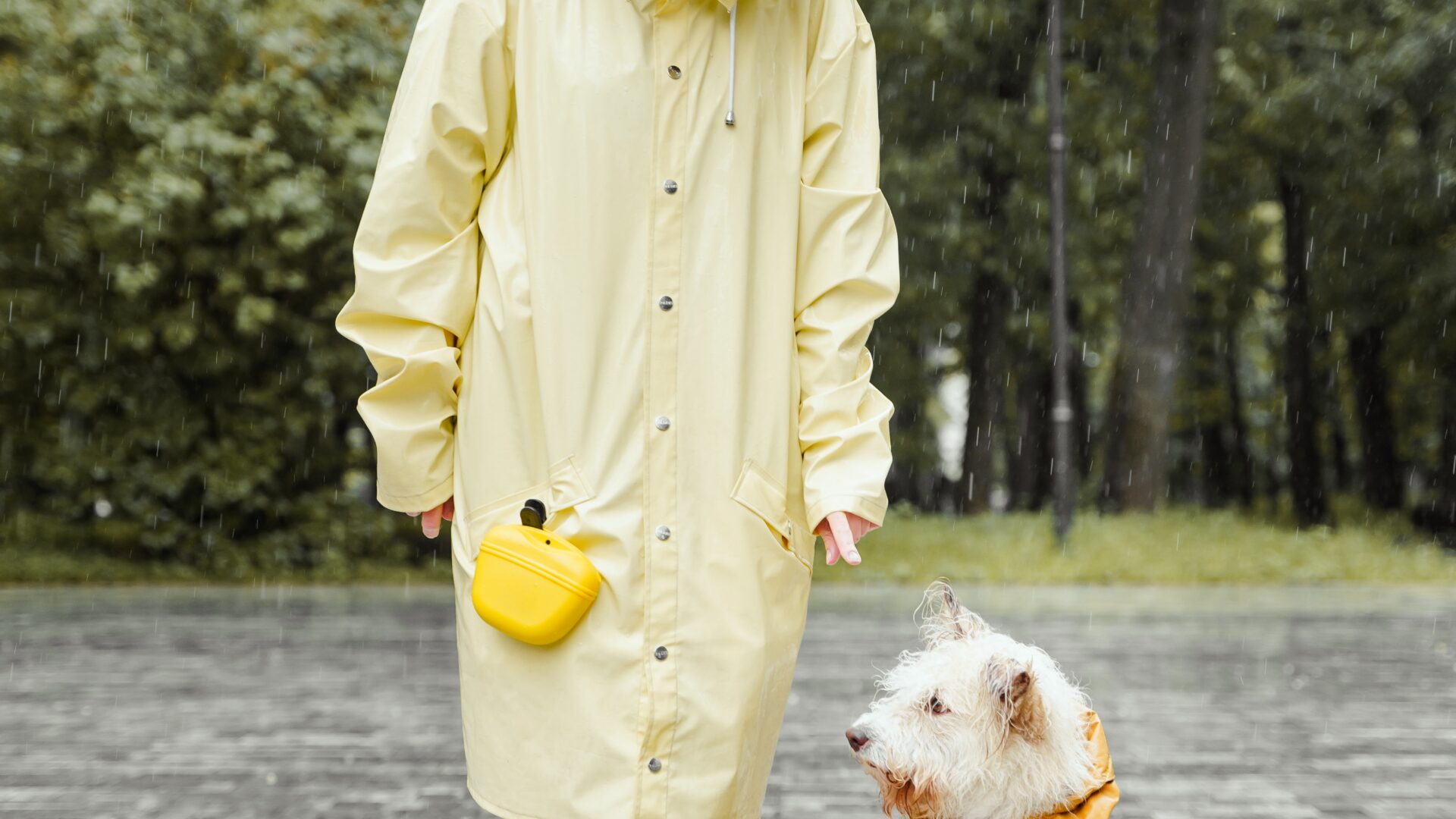It’s time for you and your pet to cuddle together and enjoy the drizzling rain outside.
Although the monsoon brings a lot of relief after the sweltering summer days, it may still bring a different approach to your pet because of its humidity and cold breeze along with them. A lot of prevention and precaution should be undertaken as well.
Paw parents need to be careful with their pet’s health and hygiene as they are at risk of several skin infections, flu, and even water-borne diseases in the rainy season. Thus, it is important to put some extra care on them.


Here are few tips on how to keep your furry babies well-groomed and healthy despite the changing weather:
Keep them warm and dry. Before and after daily walks and outdoor playtime, pat dry your pet animals with a towel. Due to humidity in monsoons, there is a high amount of moisture in the atmosphere during the rainy season. Making it imperative to keep your pet’s fur as dry as possible to combat its negative effects, and prevent any bacterial and fungal skin problems. So, make sure you use a towel to dry your pets after their walks, and use anti-fungal powders to keep possible infections at bay. You will also need to temporarily switch to a waterless shampoo for dogs and cats. You can also consider getting them rain gears, a great way to protect them while also letting them enjoy the downpour outside.
Try to set up an indoor pee pad, for they do not need to go outside frequently during this type of weather. Put extra bedding and cover them up properly, to ensure they are warm and cozy.
Protect those paws. During the wet monsoon, consider covering your pet’s paws that are almost constantly touching the ground, piling up dirt underneath them. In which they are already exposed to pathogen-causing germs, viruses and other microorganisms.
To avoid infections, shoes or boots designed for furry animals can help shield their paws. But if they disliked wearing shoes, make sure to thoroughly clean their paws after every walk, with warm water and dry them with a towel to get rid of excess moisture.
Make sure to clean their ears. The monsoon season makes your pet’s ears become very moist.
To prevent ear infections, veterinarians advised to keep them clean and away from wax build-up. Quickly dry them up after every play session and bath, especially for those that are long and flappy.
Provide fiber-rich intakes. Fiber-rich fruits and vegetables will help with good digestion and regular bowel movements of your pets. Exercises performed indoors might make up for a lack of outdoor playtime. Paw parents can also exercise pet animals within the vicinity of their home by running up and down the stairs or playing fetch with them. To prevent problems like obesity, the daily food intake for those furry ones must also be proportionate to the level of activity.
Beware of loud noises and give them a comfortable resting area. Most animals, including dogs and cats, are very afraid of the sound of loud thunder. Hence, your pet must have their own private and secure resting area in the house. When the thunder frightens them, they can run to this area to feel safe. They often feel secure hiding under the bed of their owner or beside you, so leave your bedroom door open for them to retreat to when terrified or anxious.
Deworming, vaccination, and grooming are needed. The risk of respiratory infections and worm-related illnesses increases during the monsoon season. Always consult your trusted veterinarian to make sure your pets receive the appropriate deworming tablets and vaccines, if any, based on their specific immunization schedules.
Do not also forget to arrange the correct grooming solutions like pedicure, in addition to ensuring their furs dry. Since, the right antifungal powder can help their paws actually be safe and free from bacteria attacks. Pets easily get prone to skin infections during monsoons and this leads to kidney failure. Tick fever with other skin issues like pimples, redness and itching can cause problems in the long run. Luckily, these skin concerns can be treated with over-the-counter (OTC) drugs as well. For any other concerns, take your furry babies to the veterinary for expert advice best suited for their unique needs.
